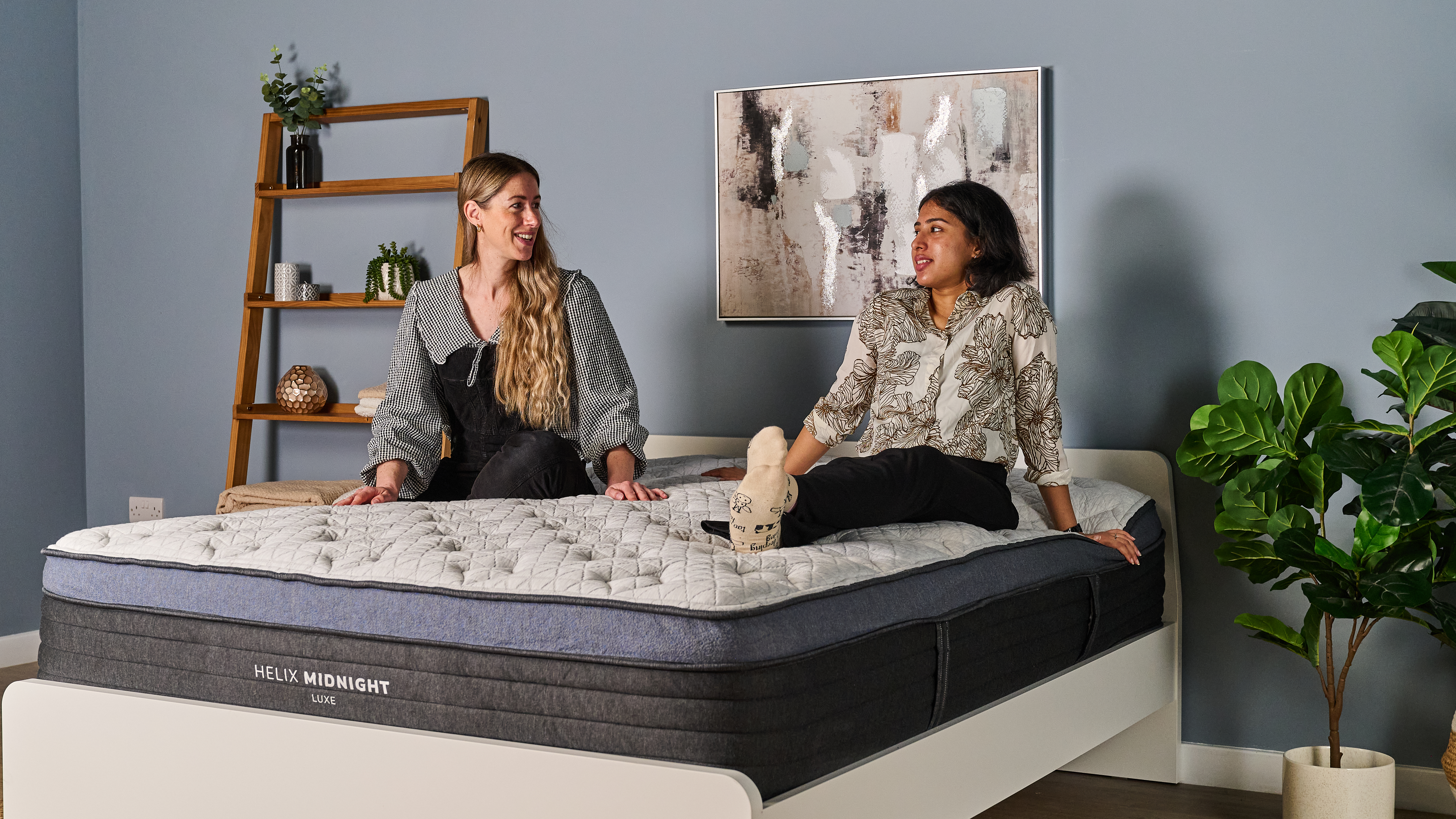Which antivirus software has the least system impact?
Antivirus software keeps you safe but sometimes at the cost of system performance

Even though they protect you from viruses and other online threats, antivirus programs can slow down your computer, sometimes by quite a lot.
However, we’ve found several antivirus programs with system slowdowns so small that you won’t ever notice them unless you’re doing something very CPU intensive like playing a demanding video game or rendering video footage.
Of the antivirus programs we tested, the lightest one is ESET Smart Security Premium which slowed our test laptop down by about 12% during active scans. ESET is also one of our picks for the best antivirus software overall.
On the other hand, the lightest free antivirus software we tested was Kaspersky Security Cloud Free with a system impact that ranged from -1% in the background (it actually sped up the system a bit) to 6% during a full scan. You also might be wondering whether you should still pay for antivirus software.
How we test AV software performance impact
We tested six paid Windows antivirus programs on a Lenovo ThinkPad T470 notebook computer and we tested six free Windows antivirus programs on an Asus X555LA notebook.
We used our home-grown Excel benchmark test, which measures how long it takes the CPU to match 20,000 names with 20,000 addresses on a spreadsheet, to gauge system impact. For Kaspersky Security Cloud Free, we used a previous version of the same test that ran on OpenOffice.
We measured system speed before any third-party antivirus program was installed; after an antivirus program was installed, but not during any active scans; during a full scan; and during a quick scan. Each test was run three times for each program, and the results averaged.
Get instant access to breaking news, the hottest reviews, great deals and helpful tips.
The numbers recorded were the completion times of the name-and-address matching tasks. Slowdowns were calculated using the pre-installation completion times as baselines and calculating the percentages by which each task increased the amount of time needed to complete the matching task. Baselines were taken separately for each program's set of tests.
| Row 0 - Cell 0 | Passive slowdown | Full-scan slowdown | Quick-scan slowdown |
| Avast Free Antivirus | 4.4% | 29.2% | 53.2% |
| AVG AntiVirus Free | 5.3% | 12.8% | 25.6% |
| Bitdefender Antivirus Free Edition | 2.2% | 29.2% | N/A |
| Bitdefender Total Security | 19.2% | 32.7% | 30.1% |
| ESET Smart Security Premium | 2.0% | 11.8% | N/A |
| Kaspersky Security Cloud Free | -0.9% | 5.8% | 1.2% |
| Kaspersky Total Security | 11.8% | 26.5% | 21.6% |
| McAfee Total Protection | 8.9% | 96% | 38.6% |
| Microsoft Windows Defender | N/A | 20.3% | 12.8% |
| Trend Micro Maximum Security | 3.9% | 56.9% | 35.3% |
The results
Among paid antivirus programs, ESET was not the fastest in all three categories that we measured: passive system impact, full-scan system impact and quick-scan system impact.
That may be because ESET doesn't have a quick-scan option. The lightest quick-scan impact among paid programs was held by Kaspersky Total Security at 22%, a percentage that was nearly twice as much as ESET's full-scan impact. Kaspersky did have the second-lightest full-scan impact in the bunch, however.
Kaspersky Security Cloud Free was the undisputed winner in the free categories, beating all rivals in passive, full-scan and quick-scan impacts. It actually sped up the system a bit after installation, indicating that it may be more efficient than the built-in Microsoft Defender Antivirus, which runs by default but deactivates itself if a third-party antivirus program is installed.
Kaspersky Security Cloud Free's full-scan system impact was a barely noticeable 6%; its quick-scan impact was a barely measurable 1%.
The runners-up
Most other programs were less consistent in their rankings. For example, McAfee Total Protection had a relatively light background impact, slowing down the Lenovo laptop by only 9% after installation. But McAfee's full scan hit our test laptop like a ton of bricks, slowing it down by 96%.
You'd probably notice that full-scan slowdown even if you were just checking email. You wouldn't notice ESET's 12% hit unless you were intensively using the processor already.
Likewise, Avast Free Antivirus (4.4%) had less of a background impact than its sibling AVG AntiVirus Free, (5.2%). But Avast's full-scan slowdown was the heaviest at 53%, while AVG's was less than half that at 25%.
It's hard to determine a second place among the paid programs. Two of them, Bitdefender Total Security and Kaspersky Total Security, had relatively high post-installation background system impacts, of 19% and 12%, respectively, yet traded that for fairly light impacts — 33% and 26% — during system scans.
On the other end of the scale were McAfee Total Protection and Trend Micro Maximum Security, which had background impacts in the single digits, yet full-scan slowdowns of 96% and 57%, respectively.
In other words, you'd be trading a small amount of permanent background noise for huge slowdowns during full scans, which you could schedule to happen only at night while the computer is idling.
Establishing the second-place finisher among the free programs is even more muddled. Microsoft Defender Antivirus, aka Windows Defender, can't really be measured for background system impact because it's built right into Windows 10 and 11. But it had a very respectable full-scan slowdown of 20% and a quick-scan one of 13%.
Meanwhile, Bitdefender Antivirus Free Edition doesn't have a quick-scan option. Its background impact is only 2%, the best after Kaspersky. But its full-scan slowdown is 29%, tied with Avast Free Antivirus for last.
It is clear that Avast is in last place in the free bunch. Not only was it tied with Bitdefender Free for the largest full-scan slowdown, but it had the largest background impact (after AVG AntiVirus Free) and a whopping quick-scan slowdown of 53%, the most among all the free programs.
How antivirus programs are marketed

Most antivirus brands offer three or four different paid Windows programs, all sharing the same basic protections but adding a few more extra features with each increase in price.
For example, Bitdefender offers Bitdefender Antivirus Plus, Bitdefender Internet Security and Bitdefender Total Security, and each costs about $20 more per year than the previous one.
But only the last has all the bells and whistles such as a password manager, webcam protection, parental controls or a system optimizer. Meanwhile, Bitdefender Antivirus Free Edition uses the same malware-detection engine as its paid siblings, just with far fewer options and extra features.
When deciding which antivirus program to buy (or download for free), evaluate which one has the features you need. For more on this, check out our guide on how to choose antivirus software.

Anthony Spadafora is the managing editor for security and home office furniture at Tom’s Guide where he covers everything from data breaches to password managers and the best way to cover your whole home or business with Wi-Fi. He also reviews standing desks, office chairs and other home office accessories with a penchant for building desk setups. Before joining the team, Anthony wrote for ITProPortal while living in Korea and later for TechRadar Pro after moving back to the US. Based in Houston, Texas, when he’s not writing Anthony can be found tinkering with PCs and game consoles, managing cables and upgrading his smart home.
